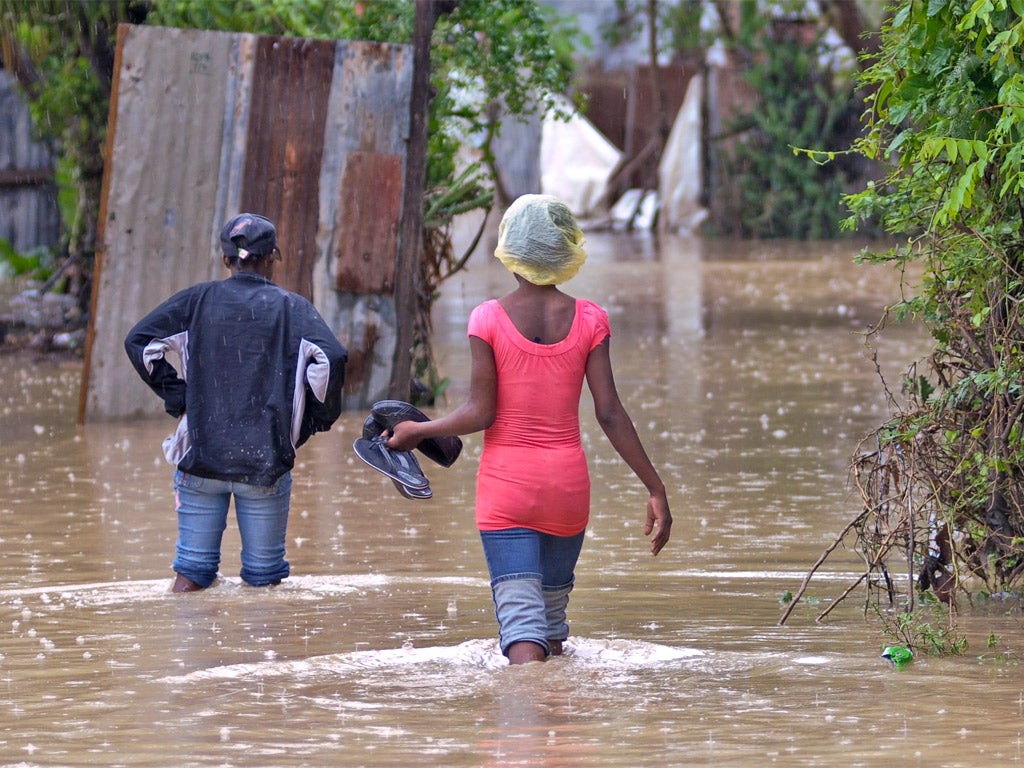Your support helps us to tell the story
From reproductive rights to climate change to Big Tech, The Independent is on the ground when the story is developing. Whether it's investigating the financials of Elon Musk's pro-Trump PAC or producing our latest documentary, 'The A Word', which shines a light on the American women fighting for reproductive rights, we know how important it is to parse out the facts from the messaging.
At such a critical moment in US history, we need reporters on the ground. Your donation allows us to keep sending journalists to speak to both sides of the story.
The Independent is trusted by Americans across the entire political spectrum. And unlike many other quality news outlets, we choose not to lock Americans out of our reporting and analysis with paywalls. We believe quality journalism should be available to everyone, paid for by those who can afford it.
Your support makes all the difference.The government of Haiti has warned that Hurricane Sandy represents a "disaster of major proportions," which could bring food shortages as well as an imminent spike in the number of life-threatening cholera cases.
At least 54 people were killed and 18,000 forced from their homes when the storm hit the Caribbean nation last week. But Prime Minister Laurent Lamothe has told reporters that the after-effects of the storm could prove to be more deadly.
"This is a disaster of major proportions," he warned. "The whole south is under water... The economy took a huge hit. Most of the agricultural crops that were left from Hurricane Isaac were destroyed during Sandy. So food security will be an issue."
Twenty people remain missing from the initial disaster, and pictures have shown destroyed bridges, submerged houses and standing water across much of the country. But the greatest threat to life may come from cholera, which is spread via contaminated water.
Aid agencies have already reported 86 new cases of the disease in the capital, Port-au-Prince, with eight deaths. Since the start of an outbreak that began in October 2010, roughly 600,000 people have been affected by the disease and more than 7,400 have died. Many of the victims were among the more than 300,000 people still living in refugee camps established in the wake of the January 2010 earthquake, which killed about 280,000 people and is regarded by the United Nations as the worst natural disaster in history.
Beyond the immediate crisis, the government must work out how to cope with the widespread destruction of crops and food supplies by the hurricane, which also killed 11 people in Cuba and caused damage in Jamaica and the Dominican Republic.
"The storm took everything away," a spokesman for Haiti's Ministry of Agriculture told Reuters. "Everything the peasants had in reserve – corn, tubers – all of it was devastated."
In Abricots, on Haiti's south-western tip, Mayor Kechner Toussaint pleaded for international aid, saying many of his citizens were already without food. "We will have famine in the coming days," he said.
There are also growing fears of civil unrest. John Chaloner at the charity Plan International told The Independent that in recent months there had been "demonstrations sparked by rising food prices".

Join our commenting forum
Join thought-provoking conversations, follow other Independent readers and see their replies
Comments